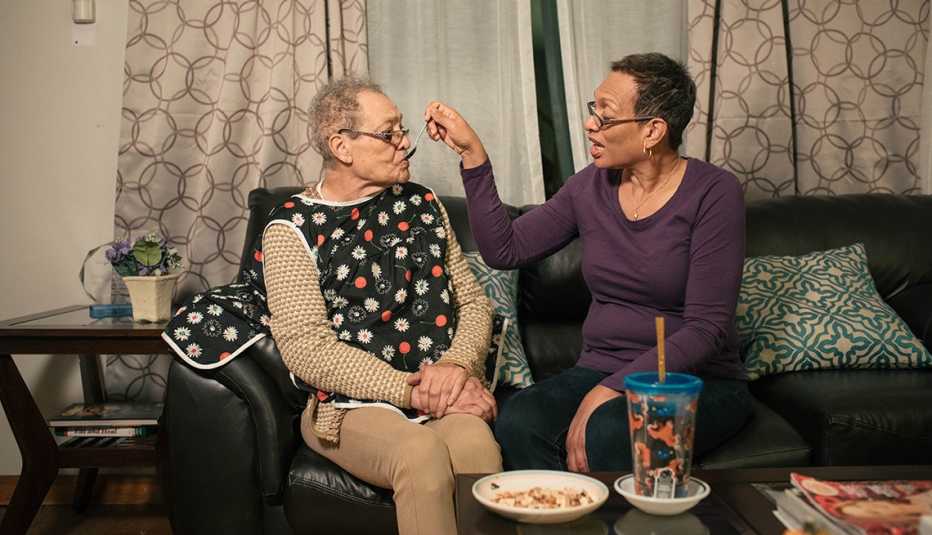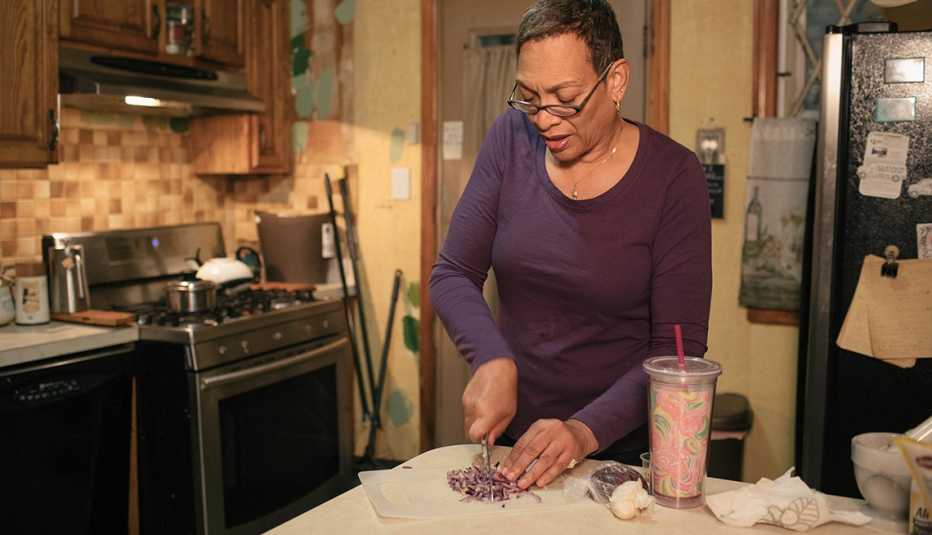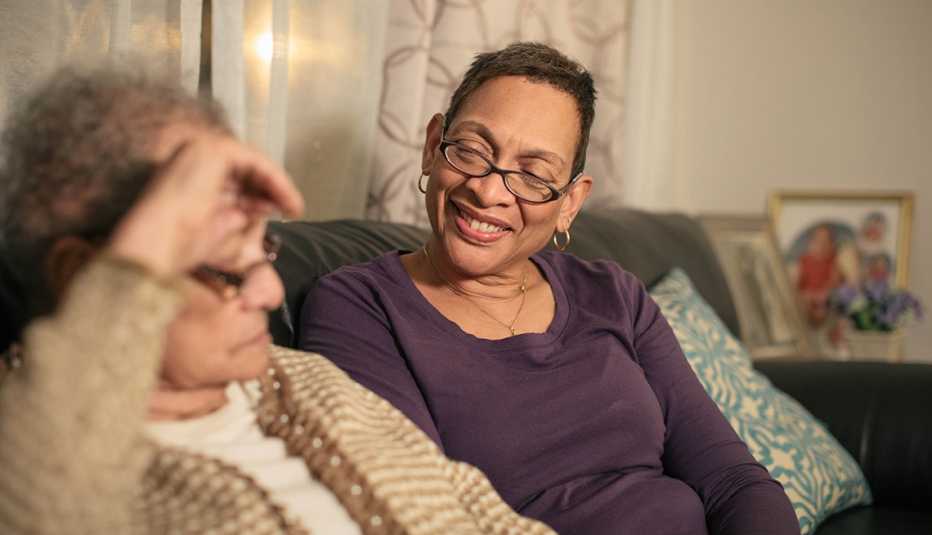Staying Fit


Sheri Yarbrough, 56, of Chicago, has a Ph.D. in education policy studies and now cares full time for her mother Ruth, 90, who has dementia, diabetes, high cholesterol and osteoporosis. Her mother is also a five-year breast cancer survivor.
"I have to watch the food she eats so her blood sugar doesn’t spike..."


I always knew I would be the one to take care of our parents, but I thought I’d be able to see it coming a long way off. Instead, it arrived without warning. In 2010, I took my mother to a general doctor’s appointment and was informed that she could no longer live alone. So I sold my home and moved into hers. The first 18 months were rocky because she and I had our differences. Her breast cancer diagnosis challenged me to change the way I acted toward her and that helped our relationship get better.


AARP Membership— $12 for your first year when you sign up for Automatic Renewal
Get instant access to members-only products and hundreds of discounts, a free second membership, and a subscription to AARP the Magazine.


I handle the majority of daily activities for her — bathing her and making sure she’s taking all her medicines, as well as cleaning our home and cooking. I realize I can’t do this all by myself so I have people who come to help me from time to time.
Cooking and making sure she’s well fed is one of my biggest responsibilities. I enjoy cooking and think about food a lot. That’s a good thing because my mother eats five or six times per day. I love food and every day is like [the TV show] Chopped for me. I’m also a little bit of a control freak about cooking because I want to know what we’re eating, and I have to watch the food she eats so her blood sugar doesn’t spike too much.
We usually have oatmeal for breakfast, then we stick with mostly proteins and vegetables after that. My mother was never a picky eater but recently she suddenly stopped eating meat at night — she’ll eat it only during the day. I learned from her doctor that one of her medications could make her mouth dry at night. So I started making eggs or tofu in the evenings, and I use herbs and spices from around the world to keep her food appealing. Lately, I’ve been playing around with soups because my mother has always liked them. I have to keep her full enough because if she’s hungry she’ll get up during the night, and she needs to be well rested to have a good day.
Seven years in, it feels good to have assumed this role in my mother’s life. I’m glad that I was in a place where I could make her last years as good as they can be and keep her happy. That brings me joy.
— As told to Stacey Colino

































































More on caregiving